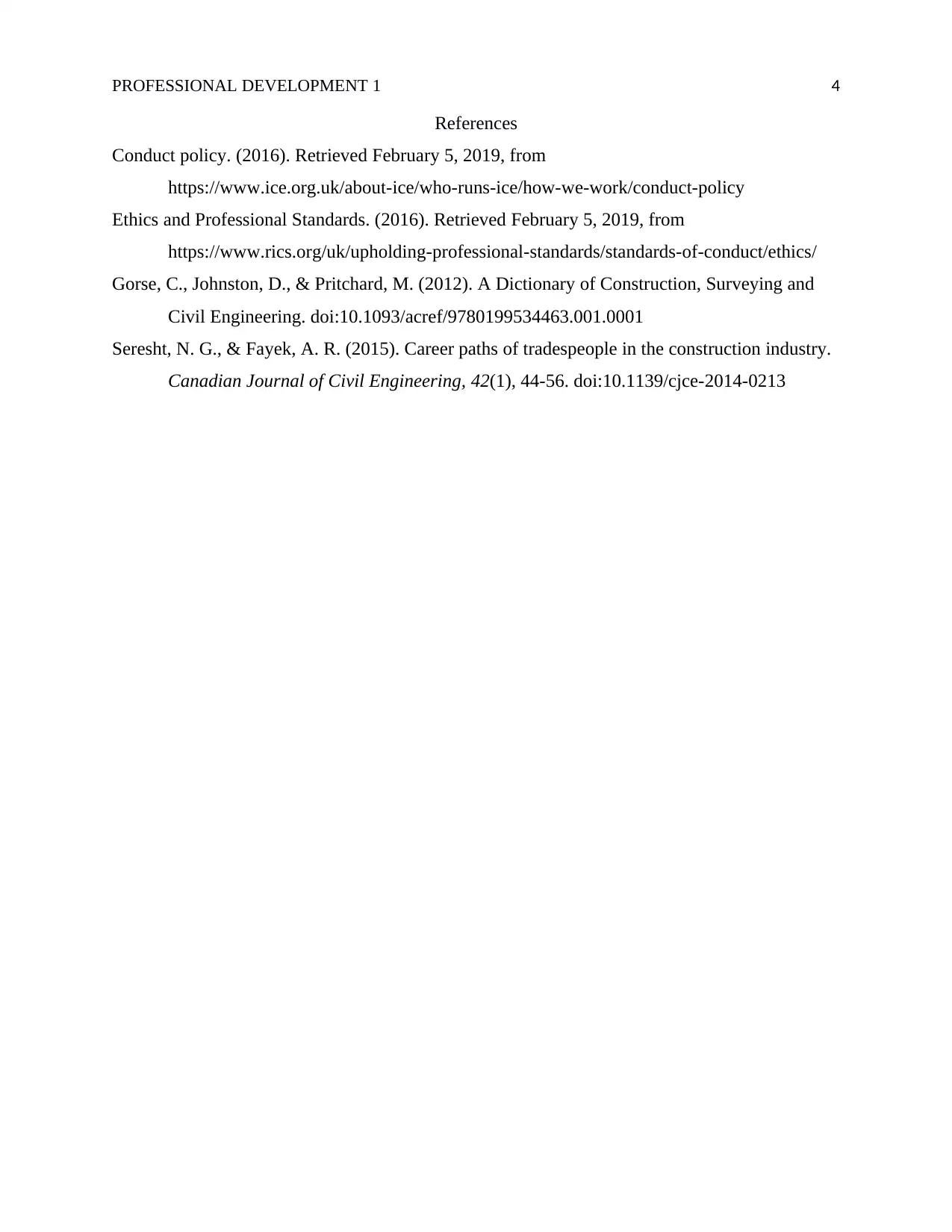University of Portsmouth Civil Engineering: Ethics and Careers Essay
VerifiedAdded on 2023/04/26
|4
|751
|303
Essay
AI Summary
This essay, prepared for a Professional Development 1 assignment at the University of Portsmouth, delves into the critical role of ethics within the civil engineering and surveying professions. It explores the three areas of ethics: Meta-Ethics, Normative Ethics, and Applied Ethics, and emphasizes the importance of professional ethics, including honesty, respect, and accountability. The essay highlights the functions of various professional bodies, such as The Engineering Council, in regulating and ensuring adherence to ethical standards. Furthermore, it provides an overview of diverse career paths within the construction industry, including plumbers, civil engineers, site managers, plant operators, and electrical engineers, detailing their respective responsibilities and contributions to construction projects. References to supporting information are provided to validate the statements and arguments presented in the essay.
1 out of 4









![[object Object]](/_next/static/media/star-bottom.7253800d.svg)